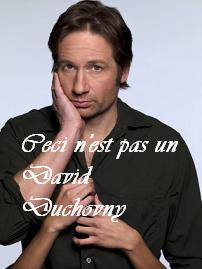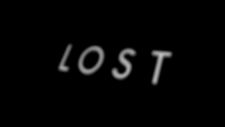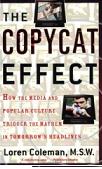Movies, TV, and Books
You Always Know Less Than Your Source, Unless It's Balenciaga
- Which party controls the U.S. House of Representative?
- Who is the Secretary of State?
- Who is the Prime Minister of Great Britain?
Continue reading:
"You Always Know Less Than Your Source, Unless It's Balenciaga" ››

 Score: 0 (0 votes cast)
Score: 0 (0 votes cast)
Wanted, Starring Angelina Jolie, Is The Greatest Movie Of Our Generation
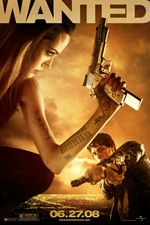
And if you dispute that, I am coming over to your house, pants down and guns blazing.
Continue reading:
"Wanted, Starring Angelina Jolie, Is The Greatest Movie Of Our Generation" ››

 Score: 29 (29 votes cast)
Score: 29 (29 votes cast)
The Women Of Lipstick Jungle Are The Same Age As Rachel From Friends
Has anyone noticed the age of characters in TV shows nowadays is older then it was, say, 10 years ago?
Think back to, say, Friends-- 20 somethings. Then Sex and The City-- 30 somethings. And now Lipstick Jungle, 40 somethings. "But that reflects the age of the viewers, they feature 40 year old actress because that's the age of the viewer-- or vise versa."
Agreed; but the 40 year old who is watching now was in their 20s when they watched Friends.
This isn't TV targeting a specific demographic, they are actually tracking the same people, as they age. If you're watching, it's for you.
Wait ten years-- when shows like Lipstick Jungle will be for, by, and featuring 50 year olds...

 Score: 5 (5 votes cast)
Score: 5 (5 votes cast)
David Duchovny Does Not Exist
Craig Ferguson, The Jonas Brothers, and Katy Perry
This is what 46 year old Scottish late night TV host Craig Ferguson said Tuesday night:
The Jonas Brothers... I'm sure they're fine young kids, and their music's not for me, it's for young people, I understand that, but my point is-- they're kind of too clean. With the purity rings, symbolizing that you're saving yourself for marriage. Now, I'm thinking-- what kind of a rock star is this? What kind of a rock star is this?...
It makes me a little uncomfortable, it's a little sinister to me, when the teenage rebellion is controlled and sanitized by a big corporation. There has to be some rebellion, or else it's not rock and roll.
Continue reading:
"Craig Ferguson, The Jonas Brothers, and Katy Perry" ››

 Score: 5 (7 votes cast)
Score: 5 (7 votes cast)
The Real Mystery of 'Lost'
Kerouac's On The Road: The 50th Anniversary Of A Book I Had Not Read

So I read it.
What is striking is how little it resembles the book everyone seems to think it is.
Has anyone actually read this book? Nine people total, all literary critics?
Enough has been written about the book itself. A more interesting question is why so many people got it so wrong.
Continue reading:
"Kerouac's On The Road: The 50th Anniversary Of A Book I Had Not Read" ››

 Score: 9 (9 votes cast)
Score: 9 (9 votes cast)
This Needs To Be Explained
145000 unique visitors may not seem like a lot to those in the porn industry, but it's a lot for me, and especially for a "throwaway post" like the one on Halloween.
Getting on Digg and the front page of reddit certainly is the cause of this, but not the explanation. The post got over 200 comments, not counting what my spam filter destroyed; more importantly, the post went to places like metafilter, where it had over 170 comments-- more than any other post that week.
Why?
Continue reading:
"This Needs To Be Explained" ››

 Score: 5 (7 votes cast)
Score: 5 (7 votes cast)
The Scariest Thing I Have Ever Seen
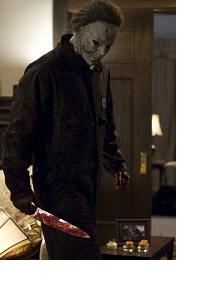
And it's wasn't this.
Continue reading:
"The Scariest Thing I Have Ever Seen" ››

 Score: 7 (7 votes cast)
Score: 7 (7 votes cast)
How Doctors Don't Think
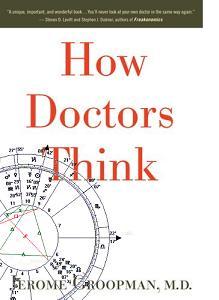
Jerome Groopman's book, How Doctors Think, is porn for doctors. While ostensibly about the ways in which doctors make errors, the real message is sure to elicit hands-free climax in clinicians: "good" doctors make fewer mistakes because they go beyond statistical probabilities and treatment algorithms to consider the whole patient. They use their clinical judgment. Many of the enemies are the usual suspects, insurance companies, Pharma.
While the book is worth reading, it isn't worth reviewing, I'm afraid-- I'll egocentrically say I think I already covered much of his ground.
But what is worth reviewing is a review of his book, by Charles Lambdin, a grad student in psychology. The review is called How Doctors Think They Think. And it is outstanding.
Continue reading:
"How Doctors Don't Think" ››

 Score: 2 (2 votes cast)
Score: 2 (2 votes cast)
The Other Soprano Psychiatrist

(Finally watching the series on DVD.)
Carmela Soprano, wife of mobster Tony Soprano, is so unhappy in her marriage that she goes to see an old, Jewish, psychiatrist, which is a leap for her as she is not too keen on psychiatrists-- or Jews, for that matter. She describes her ambivalence about her husband:
Continue reading:
"The Other Soprano Psychiatrist" ››

 Score: 7 (7 votes cast)
Score: 7 (7 votes cast)
The Sopranos Finale Explained
We meet at our regularly scheduled Monday lunch spot, and my friend says, "did you see the Sopranos finale?" No. "It sucked, nothing happened. It was completely unsatisfying. It just ended with him sitting in a diner, eating with his wife."
"What did you expect would happen?""I don't know, something, some closure. Maybe he gets whacked or something."
"How did it end?"
"He's just sitting there, eating an onion ring, and Journey's playing, and suddenly it ends. Like the film broke. And they go right to the credits."
I had never seen an episode of the Sopranos, but I knew at that moment that Tony Soprano had died.
Before I explain, I'll tell you that last night, drunk at a hotel bar around midnight, there was The Sopranos on the TV above me. It was the last five minutes, but I recognized it immediately from my friend's description. Tony sitting in a booth, his wife slides in and he gives her a grunt-greeting reserved only for the most familiar of contacts-- beyond love or friendship-- then another guy comes over and joins them.
Meanwhile, suspicious characters abound-- the Member's Only jacket prominent, a signal of belonging vs. exclusion; his daughter trying to park the car-- figuring things out on her own, she'll get it eventually-- and, of course, Journey's Don't Stop Believing.
And, like my friend said, the show simply stopped. The bar I was in had been silent-- but a collective groan arose when the credits rolled. Everyone hated it.
I was right. He was dead.
I knew he had died because I knew my friend. He is a human being living in our times, possessing an element of natural narcissism common to all of us. Remember, the narcissist believes he is the main character in his movie. This is why they-- we-- have such trouble with death. In any movie or show, even when the main character dies, the movie continues (the movie never ends/it goes on and on and on and on). It is still about him-- you see the reactions of other people to his death, you see consequences.
But in reality, when you die, it ends. There's no more; you don't get to see the reactions of other people to your death. You don't get to do anything.
I knew Tony Soprano was dead because it was too abrupt, too final, for my friend, and for everyone in that bar. There was no denouement, there was no winding down, no debriefing, no resolution. Not even a struggle for survival-- at least let him draw his gun! No death on your terms. And, most importantly, the death didn't seem to flow logically from the show. The death made no sense, it was arbitrary. It was unsatisfying.
In other words, it was too real.
We all have an element of essential narcissism in us, that's part of having an identity. But it alters our relationship to death. We want it to flow logically from our lives, and most of the time it does. But sometimes it doesn't. Except for heroes and suicides, no one gets to choose the time and place of their death, nor the manner. Nor can we control people's reactions to our death.
All we can do is choose the life we leave behind. Choose.

 Score: 12 (24 votes cast)
Score: 12 (24 votes cast)
"The Copycat Effect:" Does Reporting Violence Lead To Violence?
A reader asked me to read his book before saying that copycat suicides is not a real phenomenon.
To be fair, his book is really good. It is worth the price even as a reference guide/catalog of suicides and homicides that share similar characteristics, which are striking. While the majority of the information is a google search away, the fact is that he actually did the searches. It's also a good read-- it neither bores you nor crams the conclusions into your head.
But, I respectfully disagree. I think.
The main disagreement I have with the book is that he conflates two phenomena. His stated thesis of the book is that media reporting of violence and suicides begats copycats. However, in support of this premise, he uses examples of the media itself (e.g. movies) causing copycats.
A perfect example of this is the Werther Effect, so named for the Sorrows of Young Werther, the 1774 comic book by Goethe in which the protagonist kills himself because he can't get the girl. Subsequently, there were numerous copycat suicides-- staging it (same clothes, same desk) as Werther in the novel. Ok, I get it-- that's a copycat. But that's not an example of media reporting causing copycats.
In contrast, here's an example of a reporting-induced copycat: Coleman relates the Bergenfield Four. For a few months, there were rumors that a bunch of kids who called themselves "The Burnouts" had made a suicide pact. In September of 1986 their leader killed himself; in March of 1987 four others carbon monoxided themselves in a parking garage, leaving a note that clearly linked the deaths. One week after that, a cop found two other kids trying to do the same thing in the same garage. The day after the original four suicides, but in Illinois, two other teens suicided the same way (in a garage, in fact.) Coleman writes that by checking newspapers, he counted 22 teen carbon monoxide suicides in two weeks-- 47 in a month.
But then there's the case of Barry Loukaitis, who in 1996 shot two kids and a math teach, and said he got the idea from Stephen King's Rage, Pearl Jam's Jeremy, Natural Born Killers and The Basketball Diaries. Coleman writes that "the media attention...triggered a series of similar events." So, in these copycats, was it Basketball Diaries or the evening news? It's hard for me to see how the news can be more influential to a suicidal kid than the movie itself-- do kids even watch the news?
In fairness, he does cite numerous examples of media reporting induced copycats (check out the chapter "Planes Into Buildings" for a wild ride) but overall the argument is weakened by using both together. I left the book reasonably convinced that media can inspire copycat violence, but not that they inspire violence itself. In other words, I think those Werther scholars were going to kill themselves somehow, but they decided to shoot themselves (as oppposed to self-immolation) because of the book.
The distinction-- media or media reporting-- is important because the solutions are different. Here's an example: the book opens with the story about how one month after Marilyn Monroe's suicide, 197 (mostly blonde women) "appear to have used the model," to suicide-- an increase in the suicide rate of 12%. Furthermore, the suicide rate never went down after that. "This is the copycat effect working with a vengeance." Maybe. Or maybe the graphic description of the suicide wasn't to blame, but rather that a huge icon had done it at all. Are they copying her, or is society ripe for self-destruction? Either way, should we not report that Monroe killed herself at all? How much do you control information to protect the people? If the government is doing the controlling, then I can't imagine the answer should be anything other than "not at all, get the hell out of my face."
I've always said that the "mainstream media" is neither liberal nor conservative-- they are sensationalist. Of course I think they overreport, and overdramatize unusual violence. But I see that as more of a symptom of our culture than the cause of anything. You could close down all news portals, it won't change the amount of violence. Sure, maybe you wouldn't have thought of playing Russian Roulette. But you were going to come up with something.
Coleman wrote a thorough book, using the type of diligent research the CIA is supposed to be good at: compiling open source information and forming links. I only partly disagree with his conclusion, and I am still open to further arguments. But I am against the solution.
It's worth remembering that, in response to the copycat suicides, Sorrows of Young Werther was banned in Germany. I know I am one of only 8 people who has actually read it, but do we really want it banned? Maybe "dangerous" books need to be delayed by a generation to be published? And you see my problem.
Absent direct power or wealth, the only thing that keeps us free is information. I believe it is worth the risk of copycat suicides, especially since influencing the choice of the method of suicide isn't the same as influencing the choice of commiting suicide.

 Score: 2 (4 votes cast)
Score: 2 (4 votes cast)
Desmond's Teleological Suspension of The Ethical-- Or My Novel?
A few weeks ago I had used a Lost storyline to explain my own view that we pick our own identities, rather than have them given to us through either genetics or the environment. I made Desmond the Abraham in Kierkegaard's Fear And Trembling.
The crux of the episode and the analogy is that Desmond thinks he can see the future, and see that Charlie will die. But Desmond then makes a vital moral step: he decides that it is also his responsibility to keep this character alive. (Quoting myself:)
The real question is why Desmond actually believes such a choice exists. How does he think he knows the future? Anyone else in his shoes would have come to a very different, more logical, conclusion: this is insane. What, he can predict the future? Worse: what, he's the only reason Charlie is alive? He's so-- necessary? Isn't that narcissism?
If Desmond knew he could predict the future-- if it was a fact that he could predict the future-- then saving Charlie would have little moral heroism. Any fool a step up from absolute evil would have tried to prevent a horrible outcome if he knew for certain what was going to happen.
What made Desmond worthy of admiration was, exactly, that he did not know for sure he could predict the future. He took it on faith that he could, and then proceeded to live his entire life based on this single, faith based, assumption.
That was Feb. 15. Strangely, I just saw last week's episode, in which Desmond turns out to have once been a a monk, and he has a discussion about Abraham and Isaac with another monk; the wine they make is named Moriah; and later Desmond explicitly references the test of faith-- straight out of Fear And Trembling.
I suppose this could be a coincidence.
Another possibility is the writers read and and love this blog and have gone and reshot future episodes based on my ideas. HA!
Another possibility is I write for Lost. HA HA!
But the final possibility is the most likely, and it has less to do with Lost and more to do with the direction of our fiction.
Pre 9-11, fiction, and especially sci-fi, had a distinctly post-modern flavor. The main character wasn't really a person, but reality-- that it was wrong, or hidden. This culminated in the Matrix. The important concept wasn't altering reality for some purpose; it was that reality itself was a fabrication, the Demiurge hiding real reality behind a fake one.
The story goes that Darren Aranofsky (director of Pi) and Jared Leto walked out of the Matrix and asked, "What kind of science fiction movie can people make now?" The point was that the postmodern slant, cyber-realities, etc, were done as well as they could be. So, too, CGI. From now on anything else would be coattail riding. (Think how Pulp Fiction degenerated into Go and 2 Days In The Valley.) The genre was finished.
So what's next? Well, for Aranofsky the answer was the mind (see The Fountain), but I'd suggest an even broader answer: ideas. The next genre of sci-fi, or fiction- has to be about the conflict of ideas, identities.
If I was going to write a novel-- and who says I'm not?-- I'd take advantage of our societal narcissism, our search for identity-- and, more importantly, for excuses why we have certain identities; our fear of death manifesting as age-postponement; and the decline of truly meaningful relationships to write a sci-fi novel about what really keeps us linked to each other.
The operative question would be: if you could be anyone, had unlimited power, what would be the ethical system you use to make choices? Who lives, who dies, who suffers, who doesn't? How do you decide?
The first element would be Faith. So, with a parting wave to postmodernism, the protagonist can see the future or alter reality, except that he's not sure he can do this. Worse, every time he alters reality by avoiding a future he has supposedly seen, he creates a new future he didn't predict-- but this is, of course, no different than normal life. In other words, by avoiding the future he predicted, he negates the proof that he saw the future. So he has to have Faith that he has this power, in the absence of any evidence. The protagonist of my book won't have any objective evidence that he is right or doing the right thing, he simply will have to believe, to decide, that he's right. It has to be identical to, say, psychosis.
In Lost, Desmond still has objective evidence that he predicted the future, even though it gets altered; he sees an arrow; they did talk about Superman; the parachutist looked the way he foresaw it. So this isn't exactly a leap of faith. Similarly, if Abraham really knows God exists, then sacrificing Isaac isn't wrong or even strange-- God wants, God gets.
Unlike Desmond, who has to decide only if he should save Charlie, my character would have to both decide he can see the future, and also that it is his responsibility to act on it. This brings us to:
The second element, Duty. In making these decisions and accepting these beliefs-- altering reality along the way-- he'll have to establish a hierarchy of good and bad. What is he supposed to do? Does he have any duty towards anything? For the plot, this will require some symbol, metaphor. A good one might be a piece of jewelry-- some object which changes depending on the chosen duty. It's a ring, it's a sword, it's a bandage, etc-- it's the same "object" that he carries, but it changes.
The third element is Rage. When you believe something that no one else believes-- especially if you believe you are somehow better, or even different, than others; and if others directly oppose you in this belief, the inevitable consequence is rage. How to depict this?
The fourth element is Love. The negating force for Rage. This character will need to identify what he loves, and how-- platonic, romantic, etc; a plot-trick might involve altering reality and therefore altering the character of his love (for example, a woman he loves may later become his sister, etc.)
To make the reader share the magnitude of the protagonist's Faith dilemma-- in order to ensure that the reader does not "suspend disbelief" and automatically buy into the protagonist's powers (the way we have with Desmond,) you'd have to write the book from the perspective of a second character, who describes the story of the protagonist. You should never actually get to interact directly with the protagonist, you should never actually hear him speak, only this second character. This way, you're never sure what to make of the protagonist or his adventures.
Preliminary thoughts, anyway. Looking forward to the next Lost and JJ Abrams stealing my ideas. ;-)

 Score: 2 (2 votes cast)
Score: 2 (2 votes cast)
Lost TV Series: Desmond's Fear and Trembling
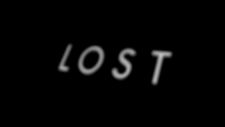
I'm no Lost expert, and I doubt the writers were thinking along these lines. But yesterday's episode got me thinking about how we become who we are.
Continue reading:
"Lost TV Series: Desmond's Fear and Trembling" ››

 Score: 10 (12 votes cast)
Score: 10 (12 votes cast)
For more articles check out the Archives Web page ››
